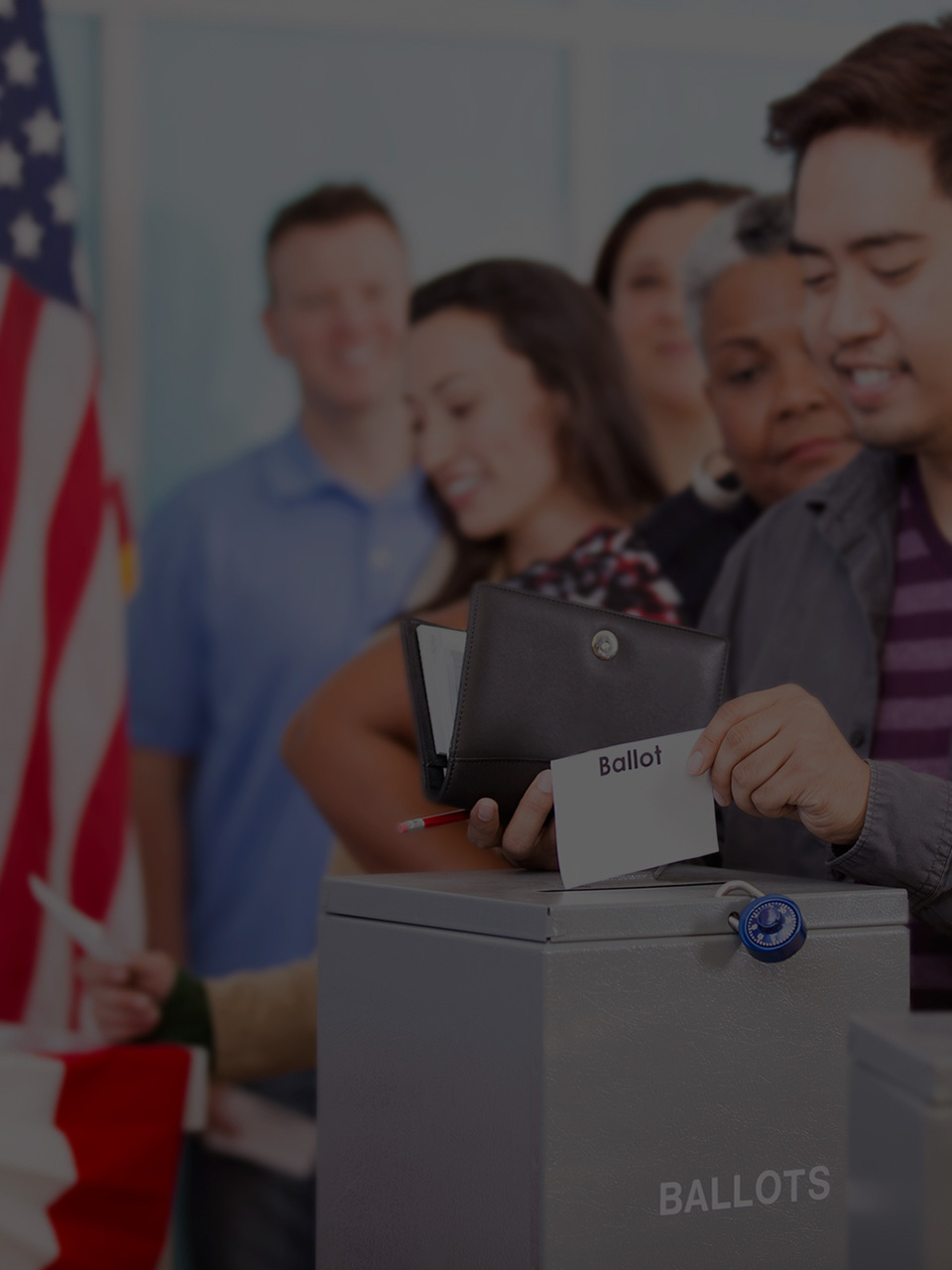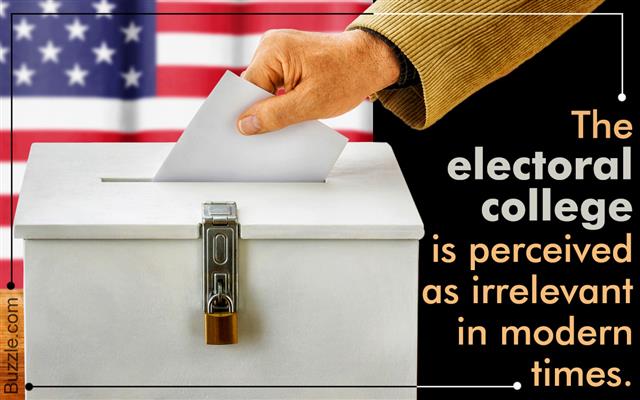
Tap to Read ➤
Pros and Cons of Electoral College
Bhakti Satalkar


The Electoral College has been into existence for the past 200 years. This system of election has drawn heavy numbers of supporters and detractors alike. Here's a brief look at the system.

The President and the Vice President of the United States of America are elected by the Electoral College. It consists of electors from each State chosen by voters.

While this may sound confusing at first, it is one of the oldest methods of election in the world. The voters elect the US Congress, as well as the Electoral College. The pledged members of the Electoral College then elect the President and the Vice President.

While some sections of society are clamoring for direct presidential elections, some remain in staunch support of the indirect system of the Electoral College. Here's a concise look at the points put forward by the supporters and detractors of this system.

The Hits ...

★ The Electoral College helps protect the interests of the smaller States, as against those of the urban centers, large States or densely populated areas of the country. The Electoral College makes sure that a candidate who has a broadly distributed appeal makes it to the highest offices in the country.

★ If the election is a close one, it is easier to recount the Electoral College scores, as opposed to nationwide voter score.
★ Matters of convenience apart, the most important argument given by supporters of the Electoral College is that it is an important symbol of 'federalism', the ideological foundation stone of the US.
★ Matters of convenience apart, the most important argument given by supporters of the Electoral College is that it is an important symbol of 'federalism', the ideological foundation stone of the US.

★ The two-party political structure in the US is maintained through the Electoral College. A two-party political structure is considered by many political analysts to be more stable than multi-party structures. The stability and relative harmony of two-party systems help bring about better developments and growth for the country.

★ Due to the 'winner-takes-all' system of decisions in the Electoral College, even a small margin of victory appears much larger. Hence, the victory is conclusive and legitimate.

At the same time, the other advantage of the Electoral College is that in case of fraudulent votes in a particular State, it does not swing the balance in favor of another candidate, as it affects only the votes of that State. The fraudulent votes are neutralized by the large chunk of legal votes cast all over the country.

... And The Misses

★ Smaller States can turn out to be 'swing states' and needlessly fluctuate the cumulative decision.

★ The advocates of direct presidential election are of the opinion that direct elections would give every citizen of the country equal vote, irrespective of the State he/she lives in. This would prevent relative value to votes from Electors from the bigger states. This has led to debate on the basis of the US being a federal constitutional republic state.

★ There have been cases where the loser of the popular vote became the President, due to favorable Electoral voting. Carrying on from the previous point, this point can lead to debate over which vote is the more important: Electoral or Public.

★ In case of a closely fought election, the exact number of seats of a party in the House of Representatives becomes a crucial factor in deciding the outcome of the election. Increasing the strength of the House would tilt the balance in favor of the bigger States and the advantage of the smaller States would lessen.

★ A possible role of the Electoral College in depressing voter turnout has also been discussed by various groups and analysts, because each State is entitled to the same number of electoral votes, immaterial of its voter turnout. There are no incentives given to the States, which encourage voter participation.

★ If there is a close battle between the two contestants, there is a possibility of the election being rigged. There is also always a chance of disloyal or bribed electors tilting the balance in favor of a particular candidate, although there are strict laws set up against just such an eventuality.

The Electoral College is under scrutiny due to it being perceived as old-fashioned and irrelevant in modern times. Both sides of the debate maintain equally impressive arguments, and the subject is interesting if you interest yourself in the subject of contentious politics.